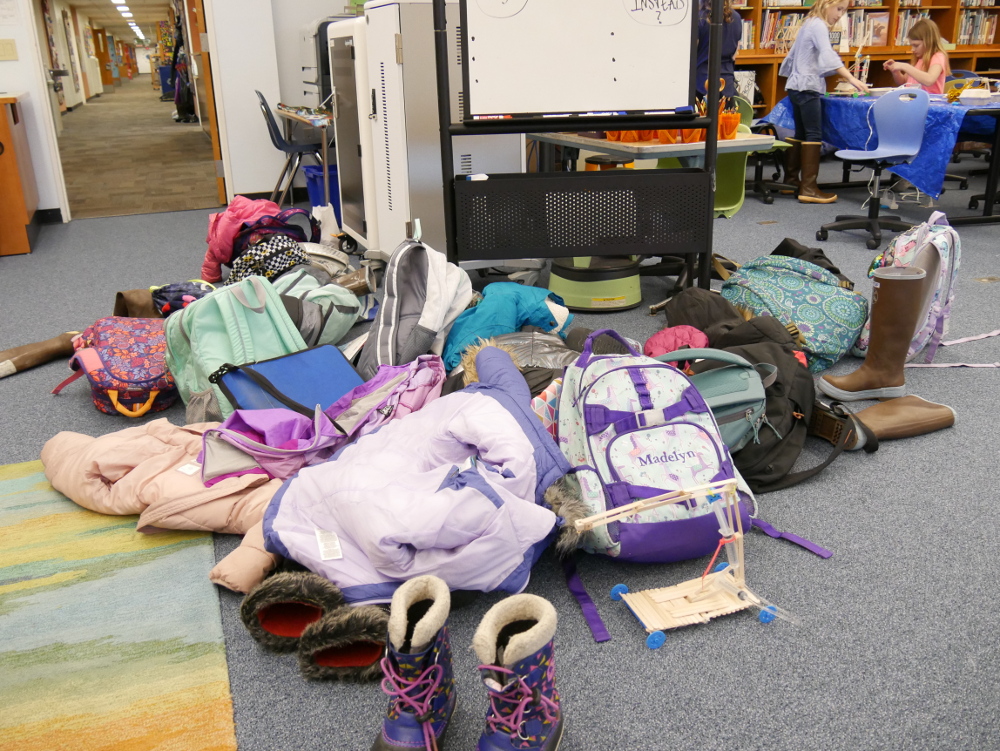
Educators in Petersburg are learning more about a new bill for improving reading skills at the elementary school level and the reviews are not all positive.
The legislature passed the Alaska Reads Act this spring. It narrowly passed the House after a unanimous vote in the Senate. The bill aims to improve reading by the third grade and was proposed by Republican governor Mike Dunleavy and Democratic Senator Tom Begich. It provides funding for pre-kindergarten programs and requires help for students who don’t meet standards.
Supporters of the law say Alaska ranks near the bottom for reading scores in the country and this bill increases accountability to improve those scores.
Stedman Elementary principal Heather Conn explained the requirements of the new law to Petersburg’s school board this month.
“Anybody who is not proficient has to have a written plan and these plans reported to the parents,” Conn said. “And so every student who comes in and takes this assessment and then on our district assessment is not proficient, below proficient, that’s where our time is going to be spent is making sure their progress (is) monitored.”
Conn thought developing those individual plans, reporting regularly to parents and doing required intervention work outside of regular classroom time could take up significant time for school staff. The legislation impacts students in kindergarten through third grade. They can be screened on their reading skills up to three times a year. Students not meeting reading benchmarks can be held back in third grade, unless parents sign a waiver.
Like others in rural parts of the state, superintendent Erica Kludt-Painter was concerned with finding the staff to do reading intervention with students.
“I think the idea behind it is great,” Kludt-Painter said. “I mean that the department is planning to do this and have these supports in place for districts and all of those kinds of things to provide training, but I don’t know where these people are all coming from because everybody’s looking for reading specialists, interventionists, counselors, special education teachers. Everybody’s searching in the same pool for the same people to provide those supports.”
The state does not require students to attend school before age 7. If a student isn’t reading yet, that late start can make it difficult to meet proficiency a year or two later. That was a concern for board president Sarah Holmgrain, who did not mince words in her opinion of the bill.
“I will be very vocal about my frustration with this whole Reads Act,” Holmgrain said. “I think it’s a total waste of money and it’s not in the right spot. It’s testing for things that are just ridiculous and if they would just concentrate on using that funding to train and hire and pay reading specialists, but we also have a whole socio-economic issue in a lot of cases or the fact that kids went home for months, and our house included, where it was a battle of wills every single day or like you said they just progress at a different rate.”
The legislation increases state per-pupil funding to school districts and it requires the state’s Department of Education to provide training for teachers and screeners. The bill also requires an annual convention to review whether reading programs and regulations are effective. The changes take effect in July of 2023.
This story has been corrected: Principal Heather Conn told the school board that progress reports to parents would be required every 10 days. The law requires at least 10 progress reports to a parent of a student with a reading deficiency during a school year. That could be less frequent then every 10 days. In addition, students who demonstrate proficiency during screening in the fall would not be screened two more times that year, only those who don’t show proficiency.










